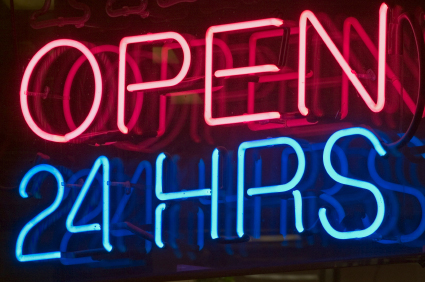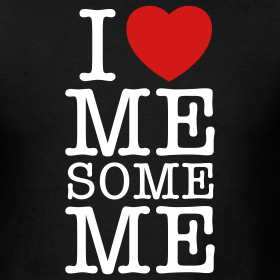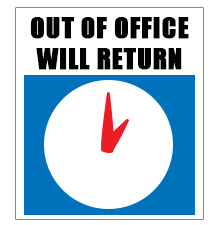REPRISE: On Nobel Prizes and Email Responsiveness
Note: The blog is taking some well-deserved rest for the next few days (that is code for I am pretty much out of decent ideas, and I doubt most folks are spending their holidays reading blogs anyway), and will be re-running some of best, or at least most interesting posts from 2014. Maybe you missed these the first time around or maybe you didn't really miss them, but either way they are presented for your consideration. Thanks to everyone who stopped by in 2014!
The below post first ran back in April and hit on a subject I was kind of obsessed with in 2014 - Email. For many, and often myself, email is a kind of scourge. It never ever stops. And while it is most assuredly a part of almost all of our jobs it shouldn't be the better part of our jobs, and all too often it feels like it is. So this piece offers a slightly different take on email - namely, if you are good enough at what you do you get to decide how you spend your time, and how responsive you are to emails.
Happy Tuesday.
----------------------------------------------------------------------------------
On Nobel Prizes and Email Responsiveness
I have a 'hate-hate' relationship with email.
No matter how much time I try to spend on email the 'task' is never completed, there is always another message that needs a response, (or the person who sent the message at least thinks it needs a response), and most responses just spawn even more messages, the digital version of the old myth of the Hydra, when cutting off one of the monster's many heads simply resulted in two more appearing in its place.
Plus, I am bad at email. Bad in the sense that I actively try and manage the time I spend reading/sending emails so that I don't reach the end of the day with nothing really to show for it, except an endless, meandering trail of email threads. If sending/responding to email is all you do in a day, then you can never be really happy I don't think - you can never complete anything. Which is the reason, even when I am really, really busy, that I try to blog every weekday. No matter how insipid, irrelevant, and lacking in insight any given post might be, it is always done. And there is some satisfaction in that.
Also, if you are someone reading this post that has been (persistently) trying to get my attention via email lately, you probably are nodding with understanding and also probably cursing me out under your breath. I will get back to you, I promise. I mean it. Really.
It is from this place, that this piece caught my attention the other day. Titled, Richard Feynman Didn't Win a Nobel by Responding Promptly to E-mails, it shares some insight into how a great and successful scientist manages to stay productive and focused. One way, certainly, was by not getting bogged down or distracted by non-essential tasks, (like 90% of emails). Feynman also says 'No' a lot - basically to any request for his time and attention that takes away from his main goals - doing great science.
From the piece:
Feynman got away with this behavior because in research-oriented academia there’s a clear metric for judging merit: important publications. Feynman had a Nobel, so he didn’t have to be accessible.
There’s a lot that’s scary about having success and failure in your professional life reduce down to a small number of unambiguous metrics (this is something that academics share, improbably enough, with professional athletes).
But as Feynman’s example reminds us, there’s also something freeing about the clarity. If your professional value was objectively measured and clear, then you could more confidently sidestep actives that actively degrade your ability to do what you do well (think: constant connectivity, endless meetings, Power Point decks).
That is a really interesting take, I think. Tying most jobs and workplaces inability to measure success unambiguously and objectively with the perceived need to spend time on those activities that 'degrade your ability to do what you do well.'
You spend countless hours doing email and sitting in status meetings because that seems to be what you should be doing, but I bet that often it is because no one knows what it is you really should be doing.
So the lesson from Feynman? Figure out what you do really well, and then focus on that as exclusively as you can. If you get good enough at it, and it is valuable enough to the organization, then you get to decide what other nonsense you can ignore.
Until then, better get back to your email. Me too.

 Steve
Steve



